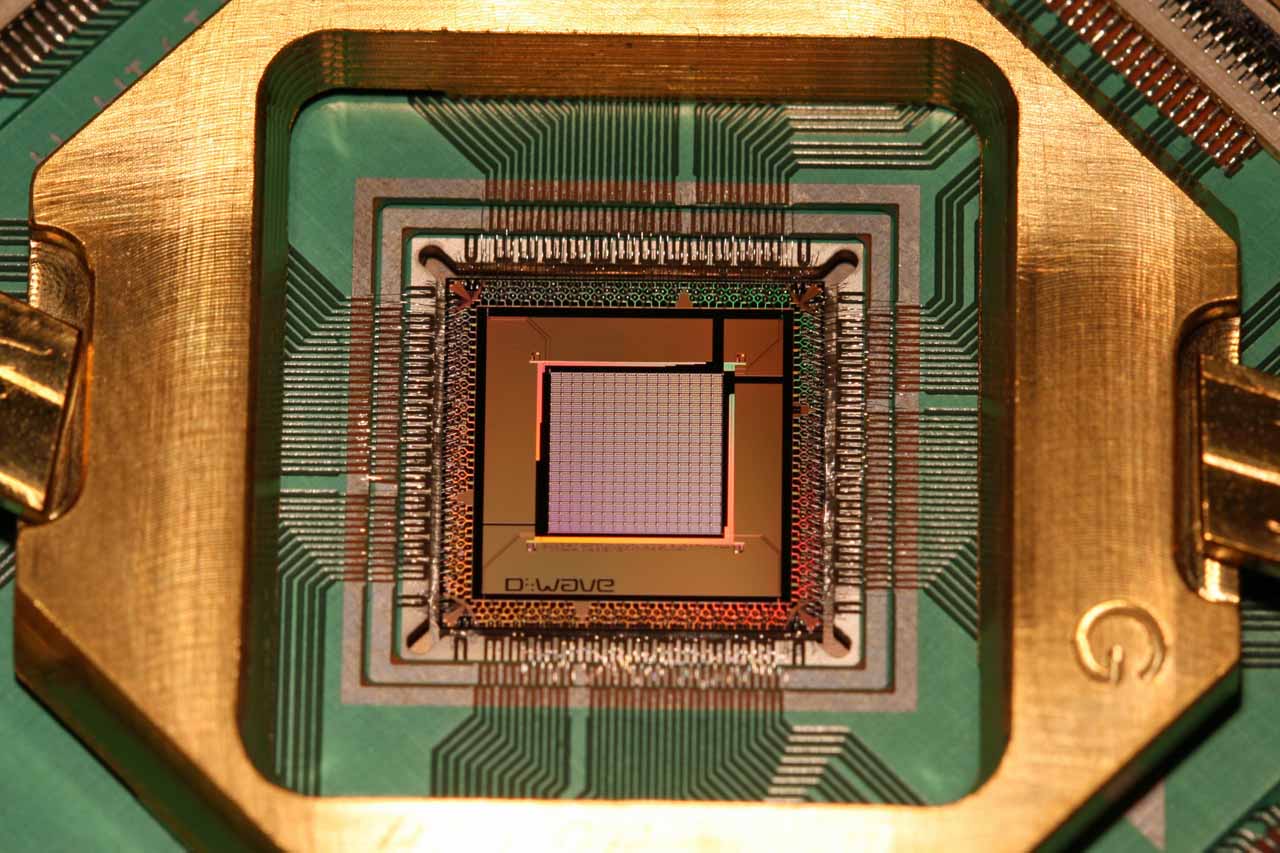D-Wave Unveils Higher-Performance 2000Q Quantum Processor
D-Wave today debuted a new processor for quantum computing. With lower noise (noise in quantum computing is also known as quantum decoherence or error rate), the D-Wave 2000Q processor boasts up to 25 times better performance than its predecessor. It takes advantage of D-Wave's new and improved quantum computing platform announced earlier this year and is available now.
Newer, Lower-Noise Quantum Chip
In February, D-Wave announced a new quantum annealing platform with a new qubit topology, lower noise, a higher number of qubits (for future D-Wave quantum computers), as well as hybrid software and tools that the company said it would deliver by mid-2020.
During the development of the new platform, D-Wave also overhauled its existing 2000Q quantum computer with a lower-noise qubit environment. The company has shown that the new and improved quantum computers can have up to 25 times higher performance in certain applications, as presented last year in a research paper. The research showed that different materials can offer a lower-noise environment for quantum computers. A quantum computer is more accurate / faster when it has the smallest error rate (or noise) possible, plus a high number of qubits.
Alan Baratz, executive vice-president and chief product officer at D-Wave, said in a statement:
“Our approach is very practical: keep putting the latest innovations in the hands of our users so that they can learn and experiment as they work to build quantum applications. The lower-noise technology demonstrates where we’re headed and why our customers are excited—from new speed-up results on specific applications to the opportunity for users to try it out themselves, lower noise is an important ongoing area of focus for D-Wave as we build our next-generation platform.”
Availability
D-Wave said that its customers have developed more than 150 quantum applications for the D-Wave quantum computer in areas such as airline scheduling, election modeling, quantum chemistry simulation, automotive design, preventative healthcare and logistics. Some have also developed new tools to improve the application development process.
The company will make the new lower-noise 2000Q quantum computer, available through its Leap quantum cloud service.
Get Tom's Hardware's best news and in-depth reviews, straight to your inbox.
The older version will continue to be available through Leap, too, so that developers can compare and see the performance difference between the two processors for themselves.
Lucian Armasu is a Contributing Writer for Tom's Hardware US. He covers software news and the issues surrounding privacy and security.
-
bit_user Reply
In what way?jsmithepa said:This quantum computing thing is start to sound like room temp fusion.
If you're expecting to have a quantum CPU in your home, nobody is forecasting that. These machines currently require impractical amounts of refrigeration and EMI protection, and there's no clear way around that. That doesn't mean quantum computing won't happen, just that it will be limited to cloud computing. It's still a big deal. -
bit_user Reply
No, I don't know that.jsmithepa said:U know this is the beginning of Skynet and the end of biologicals :D
D-Wave's quantum computers aren't at all suited to general AI. They'd be horrible at it, in fact.
If you're going to be alarmist, you should try to be better informed. -
bit_user Reply
No, they don't work like normal computers. They're actually a lot more like analog computers.AllanGH said:I wonder if there's a Debian .iso to load on it?
It's a bit like this:
3tOA8Fo6b7A
...except you don't physically connect wires. But, you still have to configure the weights to represent a problem, let it perform quantum annealing, and then read out the results.
That's not a fast operation. It's way too slow for anything realtime or interactive, which is why it's not amenable to general AI.
